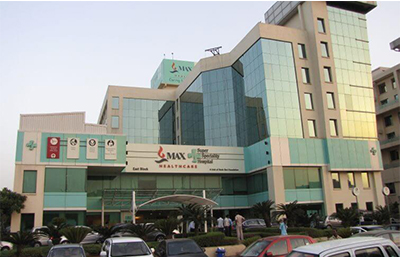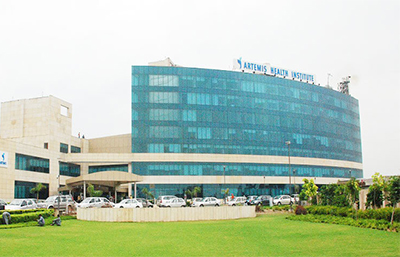The Unani System of Medicine has a long and impressive record in India. It was introduced in India by the Arabs and Persians sometime around the eleventh century. Today, India is one of the leading countries in so for as the practice of Unani medicine is concerned. It has the largest number of Unani educational, research and health care institutions.
As the name indicates, the Unani system originated in Greece. The foundation of Unani system was laid by Hippocrates. The system owes its present form to the Arabs who not only saved much of the Greek literature by rendering it into Arabic but also enriched the medicine of their day with their own contributions. In this process they made extensive use of the science of Physics, Chemistry, Botany, Anatomy, Physiology, Pathology, Therapeutics and Surgery.
Unani Medicines got enriched by imbibing what was best in the contemporary systems of traditional medicines in Egypt, Syria, Iraq, Persia, India, China and other Middle East countries. In India, the Unani System of Medicine was introduced by Arabs and soon it took firm roots. The Delhi Sultans (rulers) provided patronage to the scholars of the Unani System and even enrolled some as state employees and court physicians. During 13th and 17th century A.D. Unani Medicine had its hey-day in India.
Principles Concepts and Definition
Avicenna, one of the greatest scholars of Unani Tabb (medicine), has defined it as:
Tabb is the science of which we learn the various states of body, in health and when not in health, and the means by which health is likely to be lost and, when lost, is likely to be restored.
The basic theory of the Unani system is based upon the well- known four- humour theory of Hippocrates. This presupposes the presence, in the body, of four humours viz., blood, phlegm, yellow bile and black bile. The human body is considered to be made up of the following seven components are:
- Arkan (Elements)
- Mizaj (Temperament): In the Unani system, the temperament of the individual is very important as it is considered to be unique. The individuals temperament is believed to be the result of the interaction of the elements. The temperament can be real equitable where the four elements used are in equal quantities. This does not exist. The temperament may be equitable. This means presence of just and required amount of compatible temperament. Lastly, temperament can be inequitable. In this case there is absence of just distribution of temperament according to their requirements for healthy functioning of the human body.
- Akhlat (Humors):Humours are those moist and fluid parts of the body which are produced after transformation and metabolism of the aliments; they serve the function of nutrition, growth and repair; and produce energy, for the preservation of an individual and his species. The humours are responsible for maintaining moisture of different organs of the body and also provide nutrition to the body. Food passes through four stages of digestion:
- Gastric digestion when food is turned into chyme and chyle and carried to the liver by mesenteric veins
- Hepatic digestion in which chyle is converted into four humours in varying quantities, that of blood being the largest. Thus, the blood which leaves the liver is intermixed with the other humours namely, phlegm, yellow bile and black bile
- The third and fourth stages of digestion are known as vessels & tissue digestion.
While the humours are flowing in the blood vessels, every tissue absorbs its nutrition by its attractive power and retains it by its retentive power. Then the digestive power in conjunction with assimilative power converts it into tissues. The waste material in humour at this stage is excreted by the expulsive power. According to this system when any disturbance occurs in the equilibrium of the humour, it causes disease. The treatment, therefore, aims at restoring the equilibrium of humours.
- Aaza (Organs): These are the various organs of the human body. The health or disease of each individual organ affects the state of health of the whole body
- Arwah (Spirits):Ruh (Spirit) is a gaseous substance, obtained from the inspired air, it helps in all the metabolic activities of the body. It burns the akhlat latifah to produce all kinds of quwa (powers) and hararat ghariziyah, it is the source of vitality for all the organs of the body. These are considered to be the life force and are, therefore, important in the diagnosis and treatment of disease. These are the carriers of different powers, which make the whole body system and its parts functional.
- Quwa (Faculties)Quwa Tabiyah or Natural power is the power of metabolism and reproduction. Liver is the seat of this power and the process is carried on in every tissue of the body. Metabolism is concerned with the processes of nutrition and growth of the human body. Nutrition comes from the food and is carried to all parts of the body, while growth power is responsible for the construction and growth of the human organism.
- Quwa Tabiyah (Natural power)
- Quwa Nafsiyah (Psychic power)
- Quwa Haywaniyah (Vital power)
Quwa Nafsaniyah or Psychic power refers to nervous and psychic power. It is located inside the brain and is responsible for perceptive and motive power. Perceptive power conveys impressions or sensation and motive power brings about movements as a response to sensation. Quwa Haywaniyah or Vital power is responsible for maintaining life and enables all the organs to accept the effect of psychic power. This power is located in the heart. It keeps life running in the tissues.
- Afaal (Functions): This component refers to the movements and functions of all the organs of the body. In case of a healthy body the various organs are not only in proper shape but are also performing their respective functions. This makes it necessary to have full knowledge of the functions of the human body in full detail.
Health
Health refers to that state of human body when all the functions of the body are carried out normally. Disease is the opposite of health in which one or more functions or forms of the body organs are at fault.
Diagnosis:
The Diagnostic process in Unani system is dependent on observation and physical examination. Any illness of a person is to be regarded as a product of:
- The stuff and material he is made of ;
- The kind of temperament, structure and strength of faculties he has;
- The type of factors operating on him from outside;
- Nature's own attempt to maintain his physical functions and to ward off disruptions to the extent possible.
Keeping all inter-related factors in view, the cause and nature of illness is determined and treatment is chalked out. Diagnosis involves investigating the causes of disease thoroughly and in detail. For this, the physicians depend mainly on Pulse (Nabz) reading and examination of urine and stool. The alternative contraction and expansion of the arteries produced by the systolic and diastolic of the heart is called Pulse (Nabz).
Besides the means of pulse reading and physical examination of urine and stool, other conventional means such as inspection, palpitation, percussion and occultation are also used for diagnosis purposes.
Prevention of Disease
Prevention of disease is as much a concern of the system as curing of sickness. Right in its formative stages the influence of the surrounding environment and ecological condition on the state of health of human beings has been recognized. There is emphasis on the need for keeping water, food and air free from pollution. Six essentials prerequisites (Asbab Sitta e Zaroriayah) have been laid down for the promotion of health and prevention of disease. These are:
- Air
- Food and drinks
- Bodily movement and repose
- Psychic movement and repose
- Sleep and wakefulness
- Evacuation and retention
Good and clean air is considered as most necessary for health. Avicenna, the famous Arab physician, noted that the change of environment relieves the patients of many diseases. He also emphasized the need for open airy houses with proper ventilation. It is recommended that one take fresh food, free from putrefaction and disease producing matter. Dirty water is considered as a carrier of several diseases. The system, therefore, strongly emphasizes the need for keeping the water free from all sorts of impurities.
Exercises as well as rest are considered necessary for maintaining good health. Exercise helps the growth of muscles and ensures nutrition, increases blood supply and proper functioning of the excretory system. It also keeps the heart and the liver in good condition.
The system documents extensively the impact on health of such psychological factors as happiness, sorrow, and anger etc. There is a branch of Unani medicine known as psychological treatment, which deals in detail with this topic.
Normal sleep and wakefulness are considered essential for good health. Sleep provides physical and mental rest. The lack of it is said to cause dissipation of energy, mental weakness and digestive disturbances.
Proper and normal functioning of the excretory processes is necessary for keeping good health. If the waste products of the body are not completely excreted or when there is disturbance or blockage, it leads to diseases and sickness.
Therapeutics
In this system the entire personality of a patient is taken into account. Each individual has got its own basic structure, physique, make-up, self-defense mechanism, reaction to environmental factors, likes and dislikes. Unani medicine has the following main types of treatment
- Regimental therapy (Ilaj-bil-Tadbir)
- Dieto therapy (Ilaj-bil-Ghiza)
- Pharnacotherapy (Ilaj-bil-Dawa)
- Surgery (Ilaj-bil-Yad )
National Institute of Unani Medicine, Bangalore








